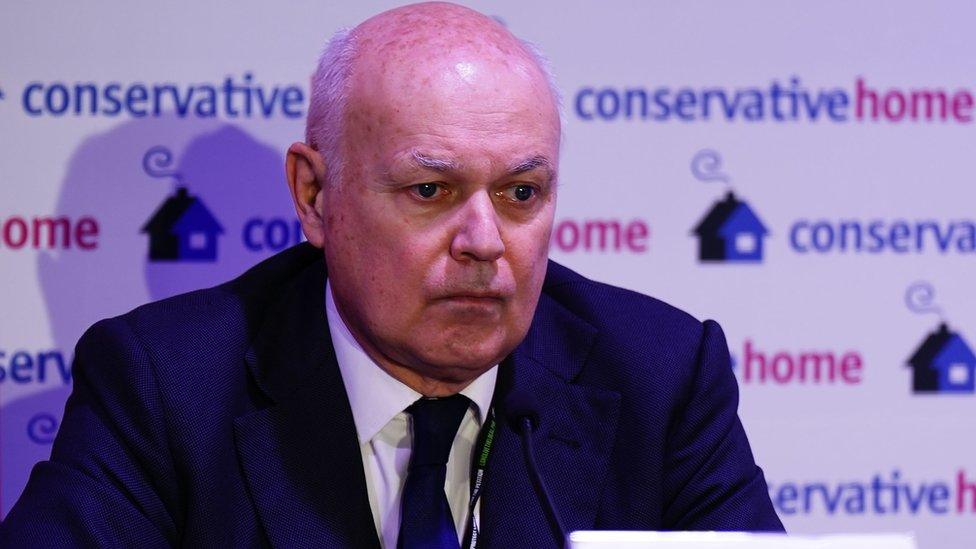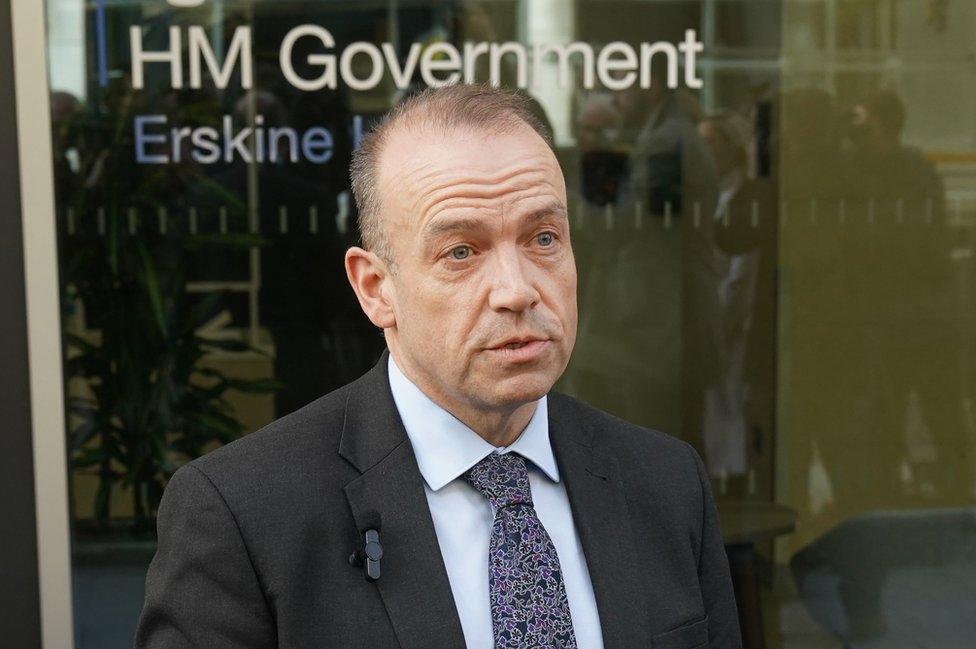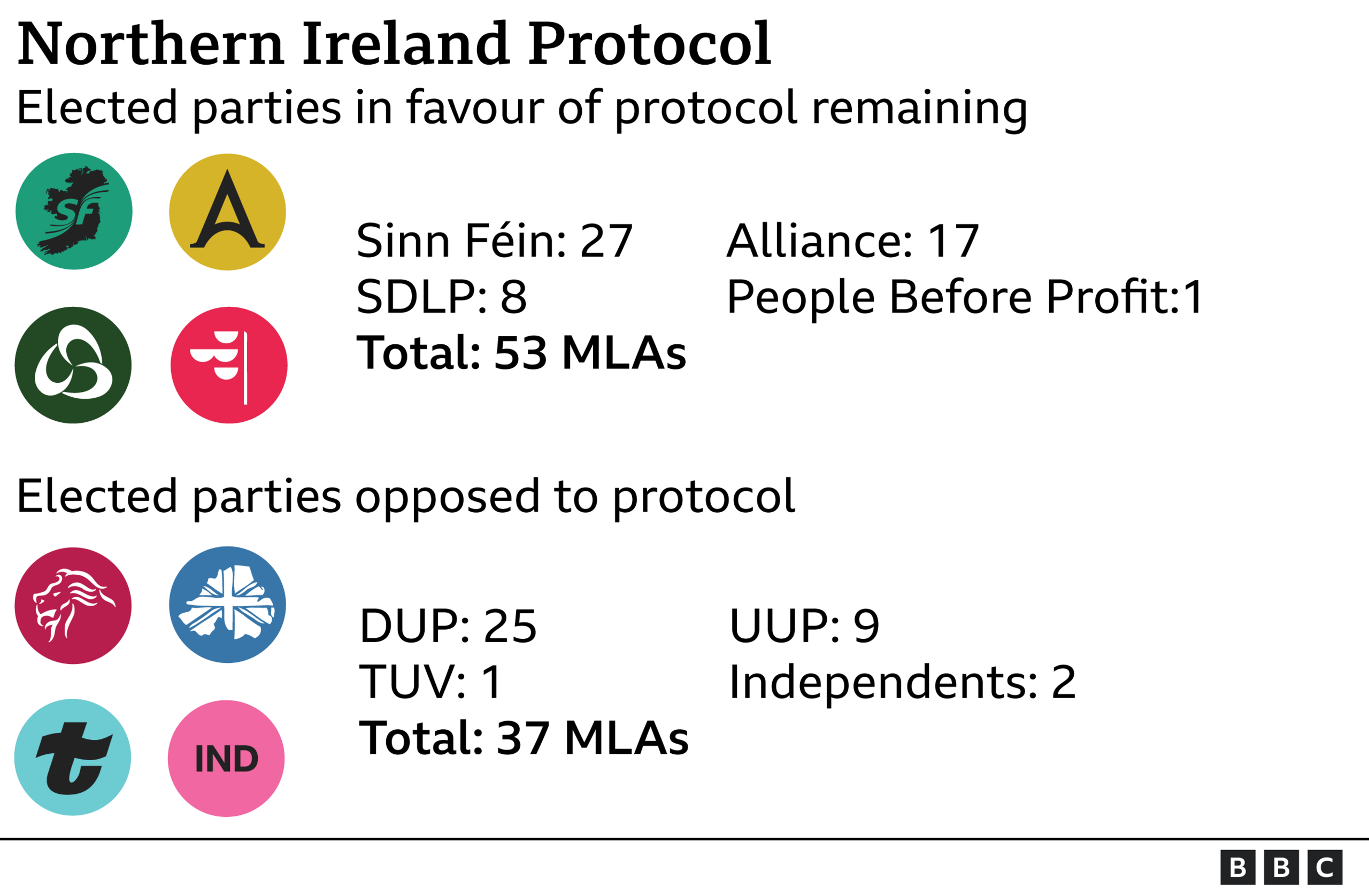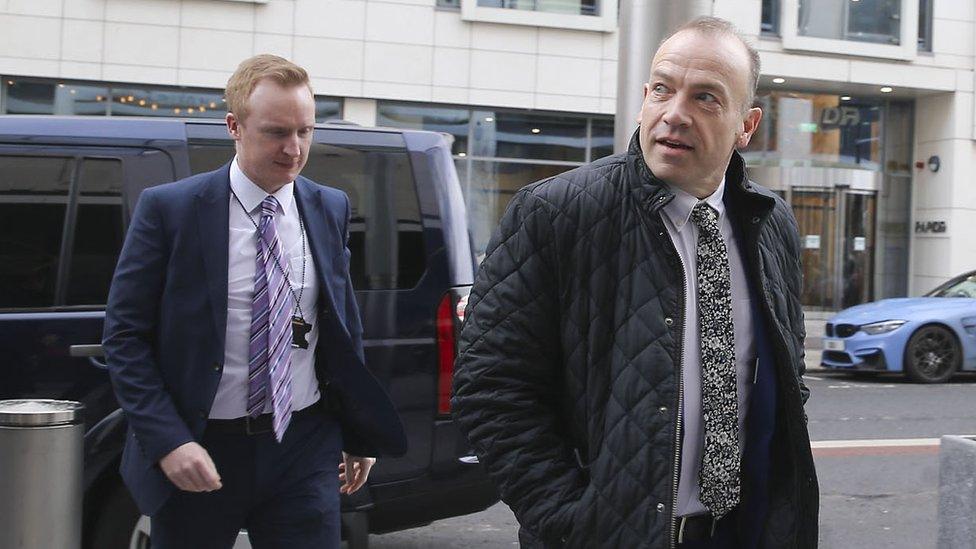NI election is last resort, says Sir Iain Duncan Smith
- Published

Sir Iain Duncan Smith says there is no appetite for another election
Another Stormont assembly election is the "last resort" for trying to resolve the political crisis, a former leader of the Conservative Party has said.
Sir Iain Duncan Smith said he did not think people in Northern Ireland wanted another election so soon after the previous poll last May.
Northern Ireland Secretary Chris Heaton-Harris has said he will call an election, with the deadline to restore devolution having passed last week.
But he has not set a date for a vote.
On Wednesday Northern Ireland Office Minister Steve Baker said a date for another Stormont election would be confirmed soon.
The leaders of the Stormont parties who would sit on the Northern Ireland Executive met Mr Heaton-Harris on Tuesday but they said he gave no clarity about when an election might be held.
Devolved government in Northern Ireland has not functioned properly since February.
The Democratic Unionist Party (DUP) has blocked the restoration of power-sharing in its protest against the post-Brexit trading arrangement known as the Northern Ireland Protocol.
'Protocol is elephant in the room'
Sir Iain Duncan Smith told BBC News NI that there was no appetite for an election in Northern Ireland.
"It's the last resort, frankly, and I don't think people want it," he said on Thursday.

Chris Heaton-Harris has repeatedly said he will call an election
"The great elephant in the room of all of this is the [Northern Ireland] Protocol itself," he said.
He urged the EU to be open to finding a resolution with the UK over the post-Brexit trading rules for Northern Ireland.
"At the moment they sort of refuse to discuss the ending of the protocol and the institution of a better way of doing things," said Sir Iain.
'UK-EU talks will bear fruit'
The protocol keeps Northern Ireland aligned with some EU trade rules to ensure that goods can move freely across the Irish land border after Brexit.
Unionist parties argue that it has undermined Northern Ireland's place within the UK by effectively creating a trade border with England, Scotland and Wales.
The DUP has refused to return to Stormont until the protocol is scrapped or changed.
The UK wants a fundamental rewrite of the treaty while the EU believes sufficient "flexibilities" can be found within the existing text.

Most politicians elected to the Northern Ireland Assembly want the protocol to remain in place
Social Democratic and Labour Party (SDLP) leader Colum Eastwood said the prospect of an election "should be taken off the table".
"The sensible thing to do would be to introduce legislation to avoid this [election] and get serious about people getting back into government," said the Foyle MP.
He said he believed talks between the UK and the EU over the protocol would "bear some fruit".
Ulster Unionist Party (UUP) leader Doug Beattie said that avoiding an election would allow the UK-EU negotiations "to continue in earnest".
He added: "Any progress potentially stands to be put at risk by needlessly calling an assembly election that will change nothing but stands to further undermine the return of devolution and cost the taxpayer £6.5m."
After Tuesday's talks with the Northern Ireland secretary, Sinn Féin vice-president said the public had been "left in limbo" with no clarity about an election.
The DUP leader Sir Jeffrey Donaldson urged the government to have a "razor-like focus" on getting a solution to his party's concerns about the protocol.
Naomi Long, the Alliance Party leader, said the Northern Ireland secretary was "clearly taking time" over what to do next.
The most recent assembly election in May resulted in Sinn Féin winning the most seats for the first time.
That meant Ms O'Neill was entitled to the role of first minister.
The DUP was the second-biggest party but it refused to nominate a deputy first minister, meaning a ruling executive for Northern Ireland could not be formed.

Read more: Stormont crisis explained

- Published1 November 2022
